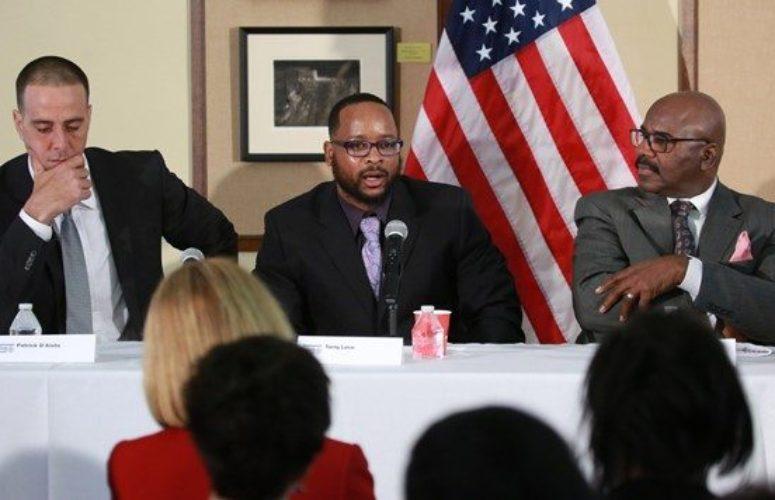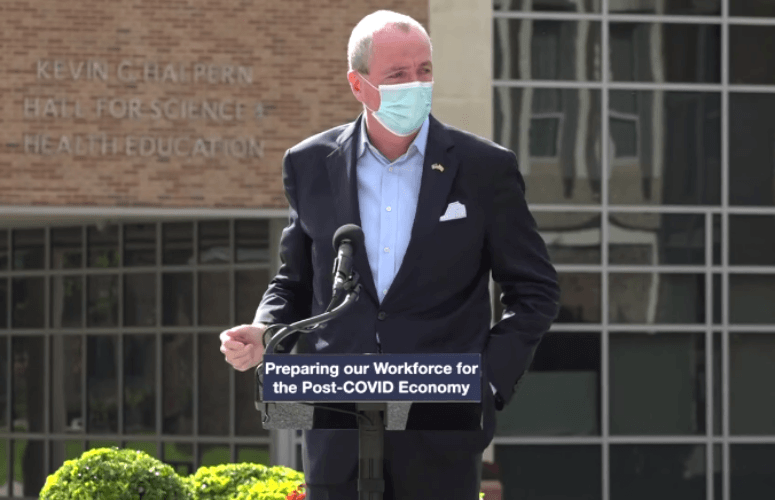
Former Inmates Discuss Necessity, and Difficulty, of Finding Jobs
By Anthony Birritteri, Editor-in-Chief On Mar 9, 2017“All four of us are the same. We are all wearing the stain of felony. And all of us have applied to an employer trying to restore the dignity of work to our lives.”
These words were spoken by John Koufos, ex-convict and the executive director of the New Jersey Reentry Corporation, about himself and three other men who paid their debt to society in a correctional facility … or so it seems.
At yesterday’s Employee Opportunity Summit at Thomas Edison State College in Trenton, ex-convicts and business leaders discussed the importance of how businesses can help ex-felons who are trying to become contributing members of society again (and avoid re-incarceration) by giving them stability and hope through gainful employment.
However, in listening to the stories of the ex-convicts, the path to employment is not easy. And for the 650,000 people who leave prison each year, the path is still arduous.
John Berry was arrested in Atlantic City 45 years ago for robbery. “Drugs and alcohol took me to a place where I started to commit crimes,” he told the audience. He was 18 years old at the time. In December of 2016, he was pardoned by Governor Christie.
“I immediately began looking for work … but I had the offense on my record and no one would give me a chance to have a career,” Berry said. “A lot of businesses still have that mentality, where even if you have served your time, you are still being discriminated against.”
Patrick D’Aiuto, who served 15 years in prison for robbery, recalled that he filled out some 63 employment applications when looking for a job; half of them adhered to “Ban the Box” requirements (not asking the applicant if he or she had a criminal record). “I applied, but did not get one call back,” he said. “Fortunately, my family knew someone who gave me a shot. I began carrying 90-lb. rolls of shingles up ladders all day. I did that for a year. Everyday, I came home tired, with bleeding hands. After a year, the company saw that I wanted to be there, so they took me to their union and I enrolled in a training class. Four years later, here I am,” he said proudly. He said that what kept him out of prison was not wanting to let his family down.
Teriq Love, a former gang member who now works for the Jersey City Public Works Department, commented that a major concern for those who have been incarcerated is how to be able to provide for themselves once they leave prison. “A lot of folks said it wasn’t going to be easy once we got out. … I told myself it was not going to be that hard. While in prison, I knew that there were certain things to do to change myself,” he said. Reading “Man’s Higher Consciousness” by Professor Hilton Hotema, was one of them. Love then told the audience that the difference between a good person and a wicked person is that when a good person is presented with an opportunity, he takes it and makes something of himself.
The stories of the former inmates were heartfelt, and one could see the humility and strength in their characters as they told their tales.
Marc Holden, general counsel of Koch Industries, underscored the business value of hiring these employees by saying that many of the former inmates the company has hired are some of the best employees it has. And in an environment where there is a lack of skilled labor, “We need to hire the best talent, period! Hire the best person with experience and drive. Don’t judge a person based on the fact they have a criminal record,” he said.
Rich Liebler, chief administration officer of Sansone Auto Group, also commented that the ex-convicts the company has hired are some of its best employees. He added, “Once they know they have a job, they know they have a shot to succeed.”
Liebler, a Vietnam veteran, said he visits prisons and speaks with incarcerated veterans prior to their release, offering them internship opportunities. “It takes two to three months for them to assimilate into the company. Serious mentoring is involved, but they truly are our best employees.”
Stefan Oberman of AeroFarms stated, “Hiring past offenders is not an easy thing to do, but it’s a smart business thing to do,” adding that the retention rates of these employees are higher than regular staff.
Governor Chris Christie brought the issue home by saying that these people have paid their debt to society while in prison, “yet, under the current system, the debt never ends. The fact that businesses don’t trust and can’t employ [them] is unacceptable.”
He added, “These employees here today are indispensable. Don’t give up on them.” He said that hiring these workers “could make miracles happen in the workplace.”
Michele Siekerka, NJBIA president and CEO, commented that the association is “here to support this effort. It is extremely important that our members – the employers in the state – take a moment to engage in this discussion and learn about what can be done. Hopefully, many employers will be able to participate.”
Related Articles:





